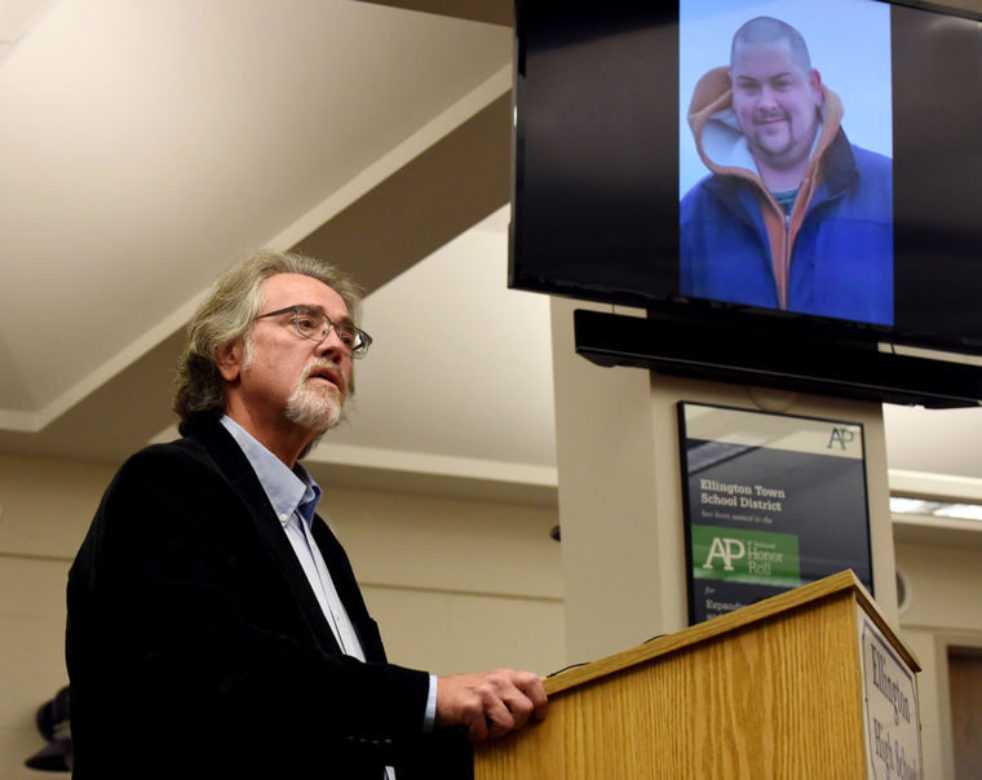Last summer, Today I Matter, Inc. (T.I.M.) held our second annual vigil on August 31st at the Connecticut State Capital building front lawn to remember those lost to addiction and to offer support to grieving loved ones. Nine years ago, August 31st was designated as International Overdose Awareness Day. We exhibited 165 posters proudly displaying the faces of individuals lost to this disease. Families and friends greeted each other and offered support. A candlelight vigil followed with a reading of the names of those lost. A woman approached me with tears streaming down her face and told me that she’d lost a son to addiction more than a year ago. She was aware of our vigil last year but did not come. She shared with me her initial shame that her son was “a drug addict.” She had told family and friends that he had died from asthma. Only now, a year later, she was finally able to speak the truth, and accept comfort and acceptance from others affected by this same disease. This is a sad example of the power of shame. We need to correct the misunderstanding of these diseases and eliminate blame from individuals and judgement toward families who have suffered and will continue to suffer.

35 years ago I began my career as a psychotherapist and psychopharmacologist working with individuals struggling with mental illness. Many also had problems with substance abuse and addiction. For the past dozen or so years drug use has become deadlier than ever. The overprescribing of addictive opiate pain medication has correlated directly with a dramatic rise in opiate overdoses and death. Many individuals who were addicted to prescription opiates turned to heroin because it became cheaper and easier to find on the street. More recently fentanyl, a much more powerfully addictive opiate, has entered the world of illicit drug use and is now primarily responsible for most deaths from overdose.
My personal involvement deepened and became all too real when my oldest son, Timothy, developed depression and panic disorder when he was 16 years old. This would eventually lead to his self-medicating with street drugs, heroin addiction, and then death by opiate overdose. Since Tim’s death, in January 2016, my life’s mission, and my path through grief, has been through Today I Matter, Inc. (T.I.M.) I started the non-profit organization in Tim’s name. Our goal is to reduce the shame and stigma of mental illness and addiction through education, advocacy, and compassion for individuals and families suffering from or dealing with these diseases. In addition we work at spreading awareness of the reality that this problem does not happen only in severely disturbed individuals and families, but in typical and otherwise healthy people. I never imagined that heroin addiction could happen in my family, as I am sure most families believe. The reality of losing my oldest son has forever deepened my understanding and experience of this epidemic. That experience has spurred me to work daily to improve my education and expertise on the subject. I’ll continue to share my knowledge and experience with anyone who’ll listen, so lives might be saved and those suffering will find understanding and support.
Drug overdoses claimed 72,000 lives in the United States in 2018. That’s more than the total number of American serviceman and women who died in the Vietnam war. Add the number of alcohol related deaths and that number more than doubles to close to 150,000 lives. Drug related deaths are now the leading cause of death for Americans aged 20 to 50 – ahead of auto accidents, gun violence, or other diseases. Sadly, this problem is continues to worsen and no community is exempt. Nearly everyone knows someone who struggles with drug addiction, including alcohol and cigarettes.
This blog will serve as a vehicle for education about the disease of addiction and to increase understanding and compassion for those afflicted and their loved ones. I’ll relate personal stories of my experience including my feelings, doubts, and questions about losing a child to this terrible disease. I’ll also share my knowledge of the science behind biological and psychological addiction. I hope that through better understanding of the myths and prejudices surrounding those with substance use disorder and their families, a learning and healing will occur. Eventually blame, shame, and narrow-mindedness will fade and be replaced by compassion, empathy, and tolerance. When this happens, those who struggle will be more likely to come forth to ask for and accept help and support.
My next blog post will explore the experiences of those struggling with the shame of addiction. If you find these important topics of interest, please follow and share them with others so that they may find help from my words. Only through understanding and compassion can we find a path to effective advocacy and eventual solutions to minimize this epidemic.

Great writing with such a heartfelt message. I still can’t get over the statistics. This needs to stop!!
Thank you for sharing your story, John. My son Matthew died in a drug-related accident and he suffered for over 12 years with a substance use disorder eventually turning to heroin. He was found a block from his home in the woods; his car was split in half. There was heroin, methadone, and benzodiazepines in his system. I believe the statistics are much higher than 72,000 if we were able to track drug-related and alcohol deaths. Thank you to you and your wife for the outstanding work you are doing spreading awareness of mental health and substance use disorders.